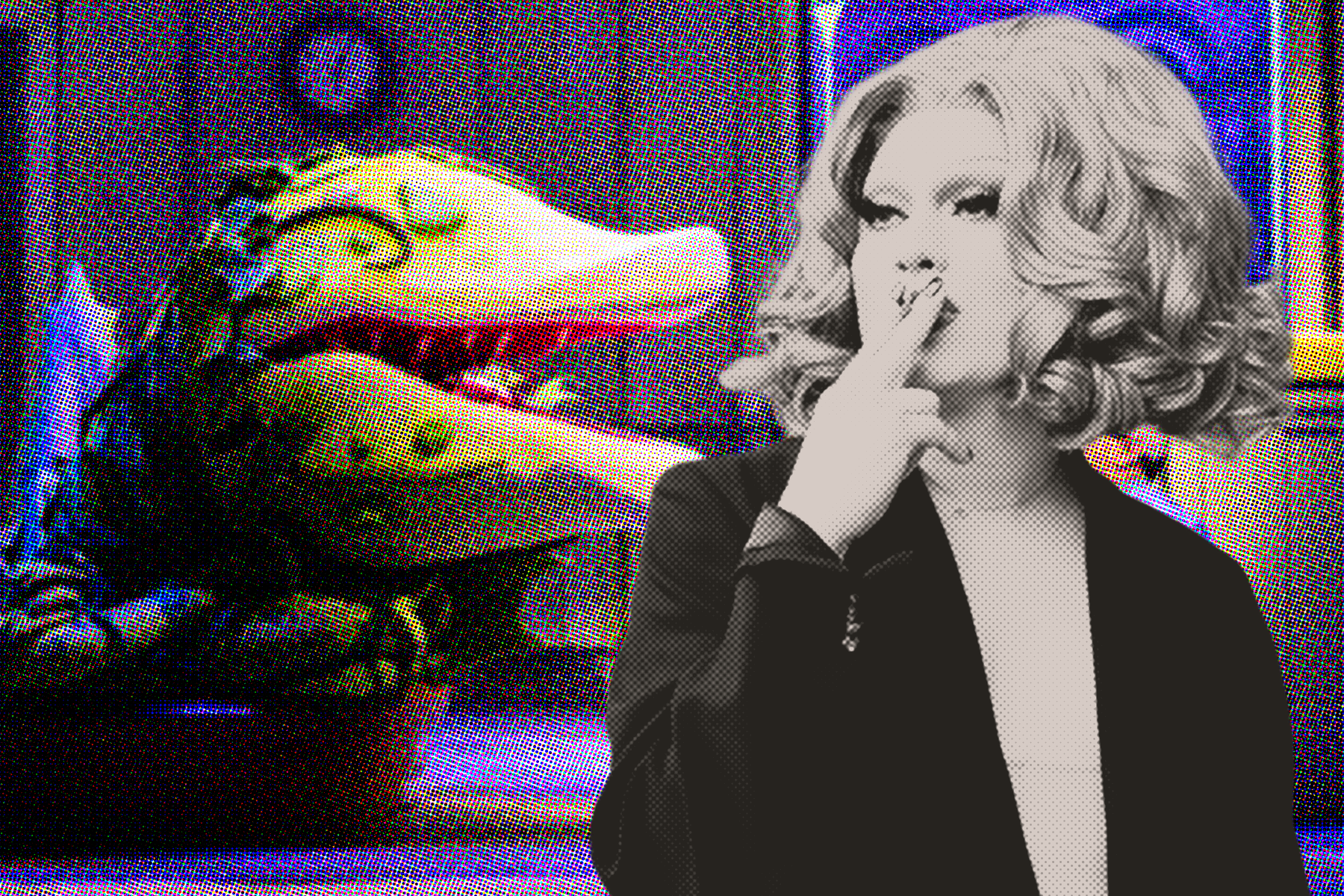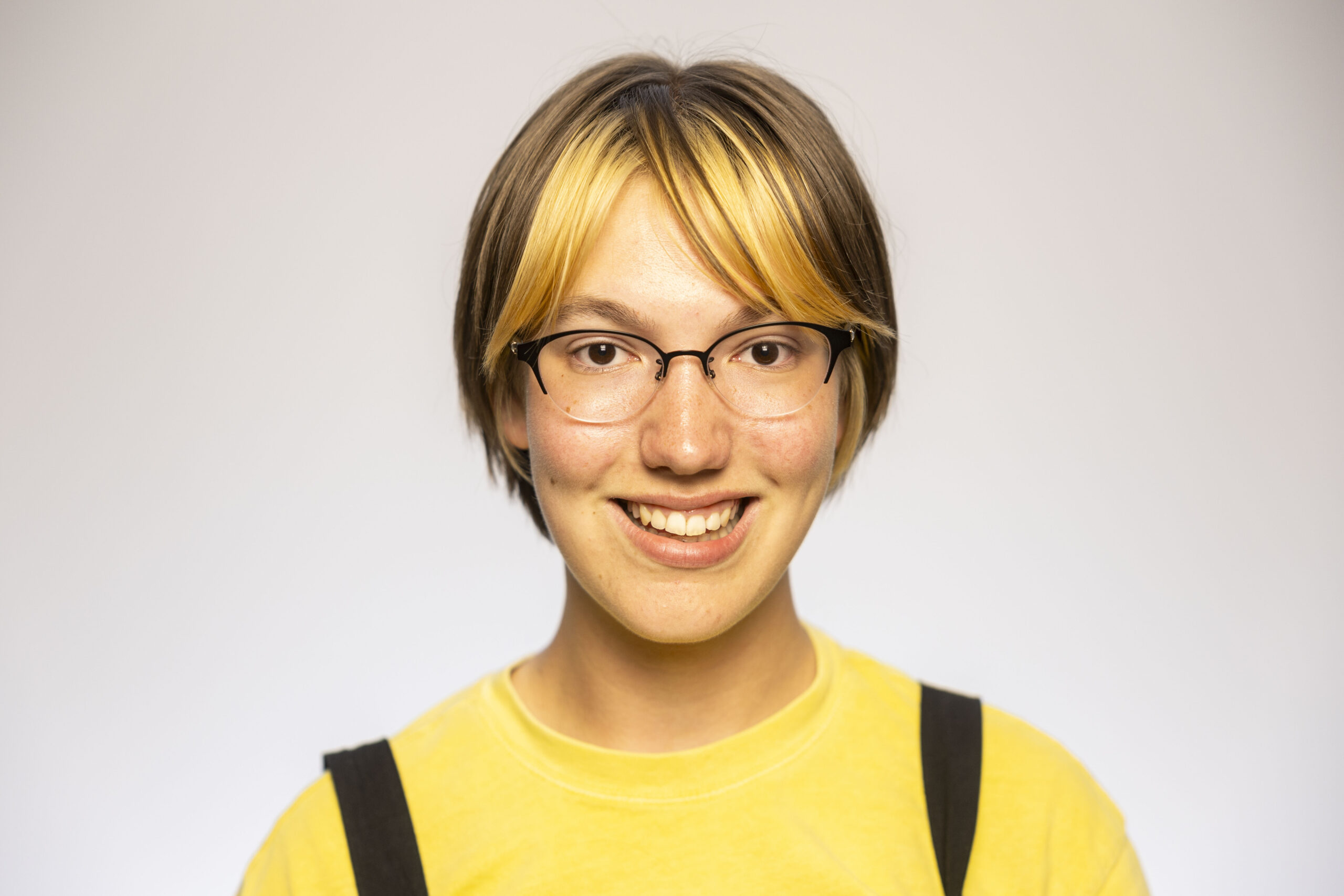The Off-Broadway production of “Little Shop of Horrors” recently announced the casting of two-time “RuPaul’s Drag Race” winner Jinkx Monsoon in the role of Audrey. Monsoon, who uses she/her pronouns when in drag, is openly non-binary and is set to begin performances on April 2nd.
Audrey is a hyper-feminine character, as shown through her tightly-fitted wardrobe and heavy makeup choices, and is traditionally played by cisgender actresses. Monsoon’s casting allows for interpretations through a transgender lens, and further nuance in terms of performative femininity and the character’s gender presentation.
The casting of Monsoon both calls back to theatre’s genderfluid past and shows potential for pushing the medium further in the future. Theatre in places such as Ancient Greece and Shakespearean London didn’t allow women to act, therefore the cast consisted purely of men. Predominantly adolescent boys portrayed female roles, playing on their softer features and shorter heights. While cross-casting can be found in today’s theatre, such as women portraying the titular “Peter Pan”, most audiences still expect a performer’s gender to match the character’s. By utilizing trans and nonbinary actors, depictions of gender on stage become more nuanced and complex, consequentially better reflecting modern realities.
While Monsoon is primarily known for “RuPaul’s Drag Race”, she expanded her resume with her role as “Chicago’s” Mama Morton at the George Street Playhouse in January 2023. The costuming utilized in her performance is very similar to past iterations of the role, but the character makeup stayed consistent with Monsoon’s personal, dramatic drag style while still keeping Monsoon’s dramatic drag-esque makeup. Monsoon became the first drag queen to play Morton, and broke box office records during her run.
Morton is a supporting character in “Chicago”, serving as the matron of the female prison ward. She is featured predominantly in her solo of “When You’re Good to Mama” where she explains the way of life in the ward to newcomer Roxie Hart. Morton oozes confidence and authority throughout the number, calling herself the “biggest mother hen” and claiming “I love them all, and all of them love me.” There’s no immediate need for character growth for Morton to have agency within the story. Morton understands how the world works (“life is tit for tat”) and understands how to make it work for her.
Audrey, however, is a character desiring change. The first musical number she appears in, “Skid Row (Downtown)”, shows her – along with Seymour – pleading and bargaining for a way out of her current situation, a way out of Skid Row. Her lines end in the repeated phrases of “get outta here” and “get outta Skid” with one line even jumping to the idea of “moving Heaven and Hell to get outta Skid.” Despite knowing it’s probably hopeless – “people tell me there’s not a way outta Skid” – Audrey holds steadfast to the goal. Throughout “Little Shop of Horrors”, Audrey is characterized by her hyper-femininity and her relationships with Orin and later Seymour.
Hyper-feminity describes exaggerated feminine traits and behaviors associated with girls and women. In terms of the character of Audrey, hyper-femininity shows up primarily in her gender presentation. Audrey wears very form-fitting clothing throughout the play, along with a noticeable amount of makeup. An explicit reason why she dresses the way she does is not given, but it is likely a combination of her low self-esteem, living in Skid Row and trying to appeal to her boyfriend Orin, who is a dentist. Despite her established relationship with Orin from the play’s start, she still sings how “relationships are no-go” in “Skid Row (Downtown)”, indicating doubt in relationships and their permanence while living in Skid Row.
It is notable how in Audrey’s “I Want” song, “Somewhere That’s Green”, Audrey doesn’t want to be seen as “sexy” or “desirable,” but rather as a wholesome feminine figure. The song depicts Audrey’s wish for suburban living with a sweet guy, a life where she can “cook like Betty Crocker” and “look like Donna Reed.” The 1986 movie adaptation changes Audrey’s clothing during this number, allowing her longer, looser dresses meant for greater practicality and agency. Audrey romanticizes the idealistic suburban life because it’s something she’s never had, and thus something that feels out of reach.
Trans women are often expected to present hyper-femininity to prove they’re “real women,” and it’s easy to see the character of Audrey through this lens in terms of her appearance.
Audrey consistently displays femininity for those around her. This display is constant and unchallenged until it’s called out in “Suddenly Seymour”. During the number, Seymour is insistent on telling her it’s okay not to perform femininity as aggressively. Seymour tells her explicitly she doesn’t need makeup after commenting to “wipe that lipstick away” and “wash off your mascara.” Not only does Seymour tell Audrey she doesn’t need makeup, but he takes it one step further with “don’t have to pretend”, indicating that Audrey’s outer appearance is, on some level, pretending or inauthentic.
Audrey spends the majority of the show in an abusive relationship with Orin. She describes Orin as a “semi-sadist” in “Somewhere That’s Green”, describing how she has a “black eye” and how “my arm’s in a cast.”
An altercation is shown between them in “Sudden Changes/Feed Me (Git it)”, where Orin demeans her verbally before hitting her. When Audrey looks back at her relationships with men during “Suddenly Seymour”, she describes how she blindly follows men, choosing to agree at a snap of a finger. Audrey also considers herself a “loser” and is surprised by Seymour’s kindness.
Viewing Audrey through a trans lens adds another layer to her relationships and low self-esteem. Dating as a trans woman is filled with additional obstacles not faced by cisgender women. Some of these obstacles include intolerance of trans identity, those who view it as an exotic experiment, and those who struggle to be seen in public dating a transgender person. She may be dating Orin because she believes Orin is the best she can get, and so must maintain her hyper-femininity to keep him. Yet, through Audrey’s relationship with Seymour, the character gets affirmed that she is lovable and desirable just the way she is.
The casting of Monsoon as Audrey allows the portrayal to interact with already existing themes of hyper-femininity and desire for change while challenging views on what the character should look likeThe challenging of views allows for theatre to represent today’s complex realities and open the door for more transgender and nonbinary actors on stage.

















